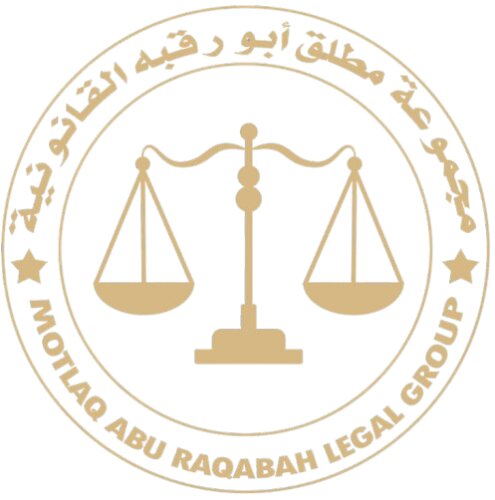Best Legal Document Lawyers in Kuwait
Share your needs with us, get contacted by law firms.
Free. Takes 2 min.
Or refine your search by selecting a city:
List of the best lawyers in Kuwait
About Legal Document Law in Kuwait
Legal document law in Kuwait encompasses the creation, execution, and enforcement of various documents that hold legal significance, such as contracts, wills, powers of attorney, and agreements. Due to Kuwait's civil law system, these documents must align with specific regulations to be valid and enforceable. Understanding these laws is critical to ensuring that legal documents accurately reflect the parties' intentions and obligations.
Why You May Need a Lawyer
Seeking legal advice when preparing or dealing with legal documents in Kuwait can be paramount for a variety of reasons:
- In drafting complex contracts to ensure all terms meet legal standards and protect your interests.
- In understanding and executing wills and estate planning documents in compliance with local inheritance laws.
- When establishing business agreements or partnership contracts to ensure clarity and enforceability.
- In preparing powers of attorney to ensure they are properly structured and adequately protect your rights.
- During property transactions where precise documentation is essential to avoid disputes.
Local Laws Overview
Several key aspects of Kuwaiti law are particularly relevant to legal documents:
- Contract Law: Governed by the Civil Code, contracts must be clear, mutual, and lawful to be enforceable. Consents must be explicit, and certain contracts require formalities such as notarization.
- Inheritance Law: Based on Islamic Sharia principles, these laws dictate how estates are distributed, affecting wills and other estate planning documents.
- Real Estate Law: Requires precise documents to confirm ownership and regulate transactions, mandating registration with proper authorities.
- Power of Attorney: Must meet specific formal requirements, including being in writing and notarized, to grant legal authority to another person.
Frequently Asked Questions
1. What makes a contract legally binding in Kuwait?
A contract is binding if it includes an offer, acceptance, and consideration, with the parties having the legal capacity and consent. Some contracts may need notarization.
2. Can foreigners draft a will in Kuwait?
Yes, foreigners can draft wills; however, they must comply with Kuwaiti laws and can sometimes be subject to conflict-of-law principles concerning their home countries.
3. How is a power of attorney executed in Kuwait?
A power of attorney must be notarized to be valid in Kuwait. It should clearly specify the powers granted and be executed with the necessary formalities.
4. What is the process for resolving contract disputes?
Contract disputes can be settled through negotiation, arbitration, or litigation. Parties commonly include arbitration clauses in agreements for smoother proceedings.
5. Are verbal agreements enforceable?
Verbal agreements can be enforceable, but it is challenging to prove terms and conditions compared to written contracts, which are more definitive.
6. How are legal documents authenticated in Kuwait?
Legal documents often require notarization, which serves as authentication, particularly for official and governmental use.
7. Can I modify a contract after it has been signed?
Modifications can be made if agreed upon by all parties and documented in writing. Amendments must be clear and precise to prevent future disputes.
8. What are the legal requirements for property sale agreements?
Property sale agreements require precise documentation of terms, parties, and properties involved. Registration with appropriate authorities is mandatory.
9. How are inheritance disputes resolved?
Inheritance disputes may be resolved through mediation or court proceedings, with Islamic Sharia law principles guiding the distribution of estate assets.
10. Is legal assistance necessary for drafting employment contracts?
While not compulsory, legal assistance is advisable to ensure that employment contracts comply with Kuwaiti labor laws and protect both employer and employee rights.
Additional Resources
For more information on legal documents in Kuwait, consider these resources:
- The Kuwait Society for Lawyers for professional legal guidance.
- The Ministry of Justice for government regulations and updates.
- The Chamber of Commerce for business-related legal documentation advice.
Next Steps
If you need legal assistance with a document in Kuwait, follow these steps:
- Research and select a qualified lawyer experienced in the specific area of law related to your document.
- Prepare all relevant information and documentation related to your case or document need.
- Schedule a consultation to discuss your legal needs, costs, and potential outcomes with the lawyer.
- Collaborate closely with your lawyer to draft, review, and execute the necessary legal documents accurately.
- Ensure all formalities, such as notarization and registration, are completed to legalize the documents.
Understanding and following these steps will help you manage your legal document needs in Kuwait effectively.
Lawzana helps you find the best lawyers and law firms in Kuwait through a curated and pre-screened list of qualified legal professionals. Our platform offers rankings and detailed profiles of attorneys and law firms, allowing you to compare based on practice areas, including Legal Document, experience, and client feedback.
Each profile includes a description of the firm's areas of practice, client reviews, team members and partners, year of establishment, spoken languages, office locations, contact information, social media presence, and any published articles or resources. Most firms on our platform speak English and are experienced in both local and international legal matters.
Get a quote from top-rated law firms in Kuwait — quickly, securely, and without unnecessary hassle.
Disclaimer:
The information provided on this page is for general informational purposes only and does not constitute legal advice. While we strive to ensure the accuracy and relevance of the content, legal information may change over time, and interpretations of the law can vary. You should always consult with a qualified legal professional for advice specific to your situation.
We disclaim all liability for actions taken or not taken based on the content of this page. If you believe any information is incorrect or outdated, please contact us, and we will review and update it where appropriate.
Browse legal document law firms by city in Kuwait
Refine your search by selecting a city.
















